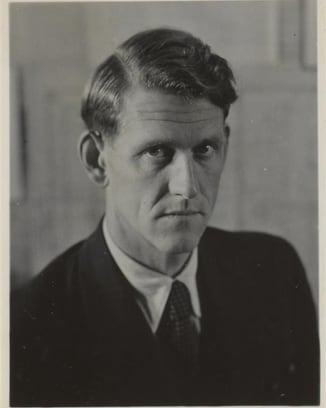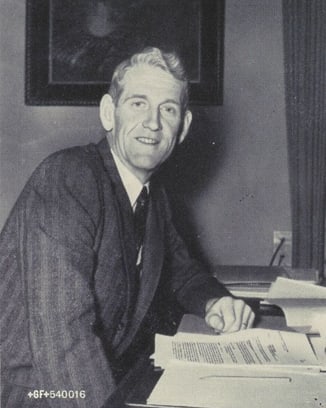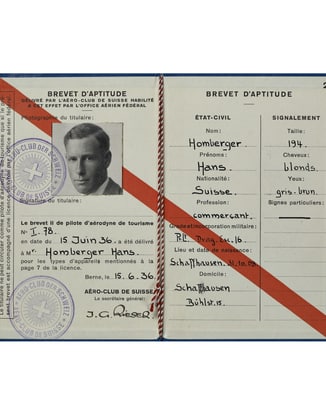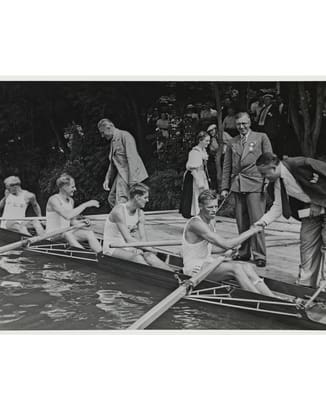World of watches
HISTORY OF IWC PILOT’S WATCHES
Read Time: 4 min
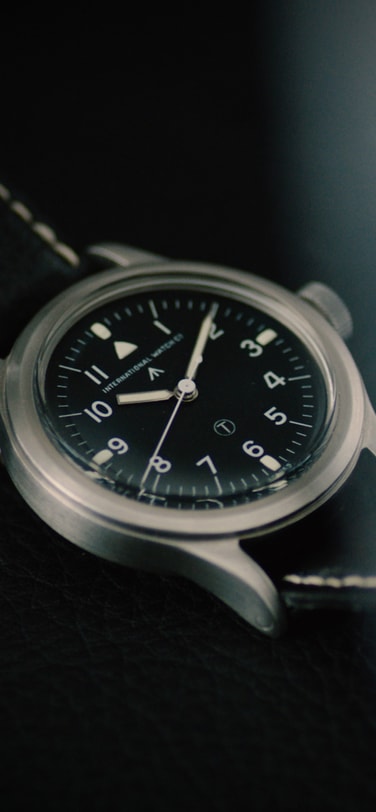
Pilot’s watches are the beating heart of IWC Schaffhausen. Trusted by aviators for generations, they are precise, durable, and built to endure the harshest flight conditions. More than mere instruments, they have become the epitome of the tool watch – indispensable both in the air and on land. This page highlights the origins of IWC’s Pilot’s Watches, timepieces that have set the benchmark for aviation watches. Iconic models like the Mark 11, the Big Pilot’s Watch, and the Special Pilot’s Watch define the classic pilot’s watch with their clear-cut design, outstanding technology, and innovative materials.
Uncover the origins of the ultimate tool watch.
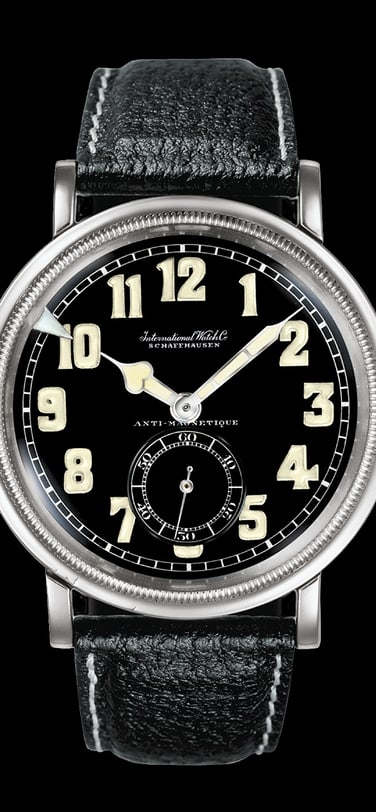
SURVIVAL GEAR
Tailored for the extreme demands of aviation, IWC introduced its first-ever pilot’s watch, the Special Pilot’s Watch (Ref. IW436), in 1936. At a time when pilots had no GPS or fuel gauges, they relied on their watches to not only navigate, but also to estimate fuel consumption. Precise and reliable timekeeping was a matter of life or death.
IWC answered the call with a pilot’s watch featuring a rotating bezel to track take-off times, and an antimagnetic escapement to ensure accuracy under even the most intense flight conditions. Built to withstand brutal temperature swings from -40°C to 40°C (-40°F to 104°F) and high forces of acceleration, it was a survival tool.
THE HOMBERGER LEGACY
The driving forces behind IWC’s first Special Pilot’s Watch were Hans Ernst and Rudolf Homberger, the sons of IWC owner Ernst Homberger. Both were trained pilots, and their experience directly shaped the development of the watch, ensuring it met the rigorous demands of the air.
The result was a timepiece that set a new benchmark for durability, precision, and functionality in aviation. The Special Pilot’s Watch quickly became a trusted tool, embodying IWC’s pioneering spirit and establishing its legacy in the world of aviation.
PASSIONATE PILOTS AND SPORTSMEN
The Homberger brothers, educated in England, embraced the lifestyle of British gentlemen. Passionate about flying and sports, they won rowing trophies across Europe. In 1936, Hans Ernst Homberger received his Swiss pilot’s license—the same year IWC launched its first “Special Watch for Pilots.” This connection between the Homberger family and aviation is a key reason IWC ventured into pilot’s watches.
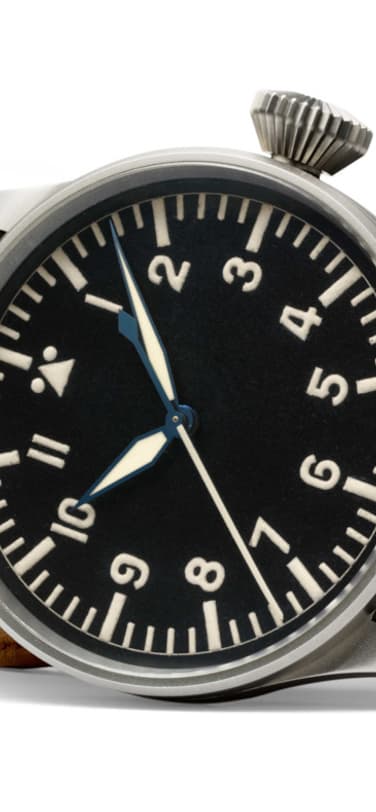
WHY THE OVERSIZED CROWN?
When it comes to pilot’s watches, bigger can sometimes be better. The Big Pilot’s Watch Caliber 52 T.S.C. (Ref. IW431) embodies that philosophy, inspiring the design of many IWC watches over half a century later.
Designed for Astro navigation the Big Pilot’s Watch’s minimalist dial is crafted for swift readability, enabling navigators of the airplane to check the time without losing focus. The long calf leather strap secured by rivets was designed for practicality, allowing it to fit comfortably over bulky flight suits. As for the oversized crown, navigators wore quilted flight gloves to keep warm in freezing cockpits, which made watch adjustments challenging. The oversized crown ensured easy operation. With only 1,000 pieces produced, the Big Pilot’s Watch is now a highly sought-after collector’s item.
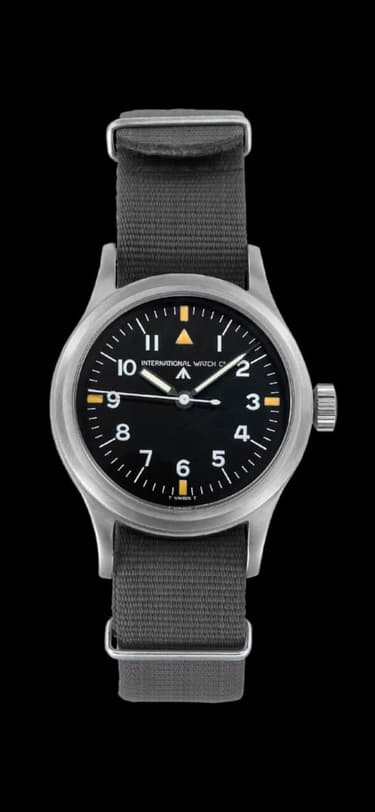
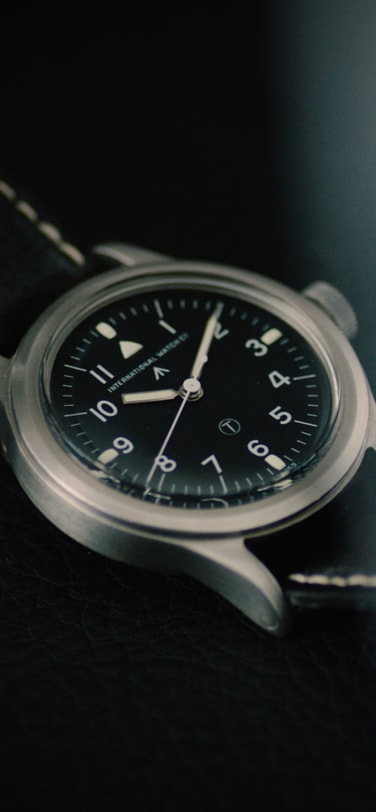
THE BRIEF: ROBUST, LEGIBLE, ANTIMAGNETIC
IWC made its mark with pilot’s watches for the British Royal Air Force, easily recognized by the Broad Arrow applied on the dial. Exclusively worn in service to the English Crown, these timepieces were the first watches featuring a soft-iron inner case to protect the movement against magnetic fields that could skew accuracy or even stop the watch altogether.
The Mark 11 was launched in 1948 and became a benchmark for military precision. It was a design icon, inspiring civilian watches and future models. The RAF requested highly precise waterproof watches with protection against magnetic fields.
With a compact 36-mm case, the Mark 11 featured the smaller caliber 89 12’’’, H4,2 handwound movement, while retaining the matte black dial and bold Arabic numerals. Its soft-iron inner cage ensured resilience against magnetic fields in the cockpit – a must for the RAF. For three decades, British navigators relied on the Mark 11, which eventually adorned the wrists of navigators from Commonwealth countries like Australia, New Zealand, and South Africa.
Discover the origins of the Mark and tips on buying a vintage Mark 11 in the IWC Journal.
